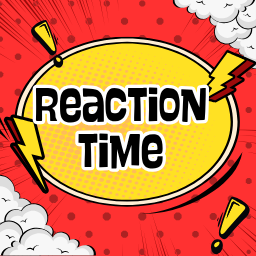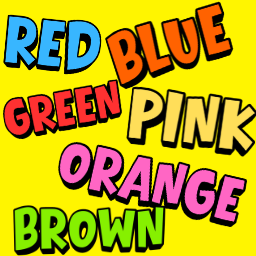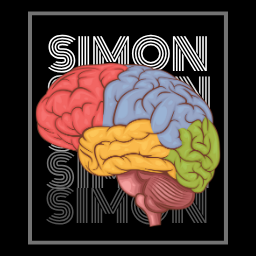Reaction Games & Speed Tests
Challenge your reaction time and cognitive speed with our collection of free speed tests. Measure your reflexes, train your brain, and track your progress - no sign-up and no download. Want more brain training? Explore our memory games.
How fast can you react?
Looking for more brain workouts?
Why Test Your Reaction Time?
The science behind speed
Reaction time is a key measure of how quickly your nervous system can respond to a stimulus. It's a fundamental cognitive skill that impacts many areas of life, from driving a car and playing sports to competitive video gaming. Training your reaction time can lead to faster decision-making, improved focus, and enhanced hand-eye coordination. Our games provide a simple way to measure and train this vital ability.
About Our Speed Tests
Explore each cognitive challenge
Reaction Time Test
This is a pure test of your visual reflexes. The screen will change color, and your task is to click as quickly as possible. The test measures the time in milliseconds between the visual stimulus and your physical response, giving you a precise score of your raw reaction speed.
Stroop Effect Test
This classic psychological test challenges your brain's processing speed. You'll see the name of a color written in a different color (e.g., the word "Blue" printed in red ink). Your task is to identify the ink color, not the word itself. This creates cognitive interference and is a powerful test of selective attention and mental processing speed.
Free Simon Game
This game tests both your reaction speed and your short-term memory. Watch the sequence of colors and sounds, and then repeat it perfectly. With each successful round, the sequence gets longer and faster, pushing your memory recall and response time to the limit.
Frequently Asked Questions
Your questions about reaction speed, answered
What is a good reaction time?
The average reaction time for humans to a visual stimulus is around 250 milliseconds (ms), or a quarter of a second. Anything under 200ms is considered excellent. Factors like age, alertness, and practice can all affect your score.
How can I improve my reaction time?
Practice is key! Regularly playing reaction games can help strengthen the neural pathways responsible for quick responses. Additionally, ensuring you get enough sleep, stay hydrated, and minimize distractions can also lead to faster reaction times.
Are these games an accurate scientific measurement?
While our games provide a fun and consistent way to measure your reaction time, a true scientific measurement would require specialized lab equipment to eliminate variables like monitor input lag and mouse click latency. However, they are an excellent tool for tracking your personal progress over time.
Browse Games by Category
Discover other types of brain-training games


